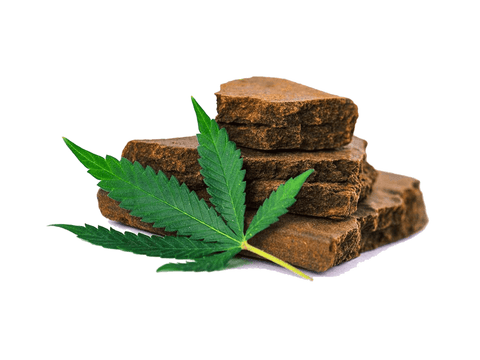Ways to strengthen your immune system with CBD
CBD, or cannabidiol, is a non-psychoactive compound found in the cannabis plant. While it has gained popularity in recent years for its potential health benefits, it is important to note that research on its specific effects on the immune system is still limited and ongoing. Some studies suggest that CBD may have immunomodulatory properties, but the exact mechanisms and overall impact remain unclear.
A while back, the world was at standstill because of the COVID 10 pandemic. According to John Hopkins University Interactive Map, we have over 800 million cases and over 7 million deaths. This meanent we needed to use every preventative method available, like social distancing, high-quality masks and PPE when needed, as well as using all available techniques to improve our immune system.
Our immune system consists of a complex collection of cells, processes and chemicals that constantly defend your body against invading pathogens, including viruses, toxins, and bacteria (1Trusted Source, 2Trusted Source).
Keeping our immune system healthy is essential in preventing infection and disease. Making healthy lifestyle choices by consuming nutritious foods and getting enough sleep and exercise are the most important ways to bolster your immune system. In addition, research has shown that supplementing with certain vitamins, minerals, herbs and newer substances like CBD can improve our immune response and potentially protect against illness.
While cannabis and CBD can help bolster the immune system, if you were to become infected, could CBD and cannabis act as a treatment? NSAID anti-inflammatory drugs may have a positive effect on treating the virus once you are infected. As CBD is an anti-inflammatory too, what could this mean for the use of CBD as a treatment?
These are all valid questions, even in terms of the anti-inflammatory drugs and the effect on COVID, it is still unclear what the relationship is, if there is one.
https://www.sciencedaily.com/releases/2020/07/200716111623.htm
Our Immune System: An Overview

We are constantly exposed to infectious diseases, bacteria and viruses (antigens), all intent on running amok and wreaking havoc. Without any inbuilt defences to keep these invaders at bay, we wouldn’t survive long. Thank goodness we have an immune system: the complex network of cells, tissues and organs, running with military precision to keep us healthy.
A key player in the immune system’s arsenal are white blood cells or leukocytes, which seek out and destroy any unwanted visitors. Leukocytes can be divided into two groups: 1) lymphocytes (B cells and T cells) that destroy antigens and help the body to remember previous attackers; and 2) phagocytes that absorb and neutralize foreign intruders.
Many of us are familiar with T cells because of their relationship with the HIV virus, which wipes T cells out, making HIV patients vulnerable to ordinarily harmless infections.
Our immune system also plays a crucial role in detecting malfunctioning cells inside our bodies, and through the process of apoptosis or cell death, ensures that these cells do not continue to grow into tumours.
That being said, here are a list of potential ways CBD might help strengthen your immune system:
-
Anti-inflammatory properties: CBD has been shown to have anti-inflammatory effects, which could help reduce excessive immune responses and inflammation in the body. This may help maintain a balanced immune system.
-
Alleviating stress and anxiety: Chronic stress and anxiety can have a negative impact on the immune system. CBD has been studied for its potential anxiolytic and stress-reducing properties, which might help support a healthier immune system by reducing stress-related immune suppression.
-
Sleep support: Quality sleep is crucial for a healthy immune system. Some research suggests that CBD may help improve sleep by regulating the sleep-wake cycle and reducing anxiety, potentially supporting a more robust immune response.
-
Pain relief: Chronic pain can contribute to a weakened immune system. CBD has been studied for its potential analgesic properties, which could help alleviate pain and support overall immune health.
Before using CBD to support your immune system, it's essential to consult with a healthcare professional, especially if you are taking any medications or have a pre-existing medical condition. Additionally, make sure to use high-quality, third-party-tested CBD products from reputable sources.
Enhancing your immune system through diet and supplements
Nutrition is a critical component of your immune response. “Just like poor nutrition can deteriorate your immune system, quality nutrition and organic supplements can be the foundation for strength and can enhance your ability to resist infections and remain healthy."

CBD and the immune system
Here are a few things we already know about CBD
- CBD has anti-inflammatory properties, which can reduce the immune system’s inflammatory response, by isolating infected areas and preventing toxins from spreading.
- CBD can promote apoptosis, or cellular death and prevent proliferation, or rapid cellular growth.
- CBD can modulate or suppress the function and secretion of cytokines. Cytokines are large groups of proteins, secreted by specific cells in your immune system. Their function is to signal molecules that regulate your body’s immunity, inflammation, and white blood cell production.
- CBD can also suppress the production of chemokine, which is a group of cytokines that act as chemo-attractants. They lead immune cells to an infection site so that the white blood cells can attack and destroy invading microbes.
- CBD can suppress T-cell production and function, ultimately suppressing the immune system’s ability to remember foreign invaders.
Enhancing your immune system through diet and supplements
The optimum immune function entails a tricky balancing act that relies on constant communication between our immune cells, tissues, and organs. With the discovery of the endocannabinoid system (ECS) in the 1990s, scientists have found another key piece of the puzzle.
The endocannabinoid system comprises two main G protein-coupled receptors (CB1 and CB2), endogenous ligands known as endocannabinoids (anandamide and 2-AG), plus the proteins that transport our endocannabinoids and the enzymes that break them down in the body.
The ECS is a homeostatic regulator – continually working to maintain a state of biological balance.
Endocannabinoids are produced on demand, travelling backwards across chemical synapses and modulating cell activity. This partly explains why the ECS has been termed a homeostatic regulator – continually working to maintain a state of biological balance.
The ECS regulates a plethora of physiological processes, including immune function and inflammation. Both CB1 and CB2 receptors can be found on immune cells, although there are between 10-100 times more CB2 receptors than CB1. Endocannabinoids act upon immune cells directly through the CB2 receptor.

CB2 receptor activation creates an anti-inflammatory effect and is, therefore, a therapeutic target for autoimmune disorders and neurodegenerative disease.1 However, any ECS immunosuppressant activity is thought to be transient, and can be overridden when necessary in the presence of infection.2
Scientists know that plant cannabinoids like tetrahydrocannabinol (THC) and cannabidiol (CBD) impact our health by interacting in different ways with the endocannabinoid system. Thus, it makes sense that consuming medical cannabis will also directly affect our immune system. But researchers are struggling to understand exactly how.
Modest amounts of a combination of these five essential vitamins and minerals below, will keep your body healthy.

- Vitamin C has antibodies which help fight against bacteria and infections. Try consuming more oranges, grapefruit, broccoli, strawberries, red bell peppers and tomato juice to get your fill of Vitamin C. is one of the biggest immune system boosters of all. In fact, a lack of vitamin C can even make you more prone to getting ill. Daily intake of vitamin C is essential for good health because your body does not produce or store it. The good news is that vitamin C is in so many foods that most people don’t need to take a vitamin C supplement unless a doctor advises it.
- Vitamin B6 is vital to supporting biochemical reactions in the immune system. Vitamin B6-rich foods include chicken and cold-water fish such as salmon and tuna. Vitamin B6 also is found in green vegetables and in chickpeas, which is the main ingredient in hummus.
- Vitamin D is used to fight off infections as well as works to maintain strong bones. You can find Vitamin D in salmon, mushrooms, fortified milk, cereals and bread. is a powerful antioxidant that helps the body fight off infection. Foods rich in vitamin E include nuts, seeds and spinach. The study looked at human T cells in the laboratory and found that vitamin D was part of a complex process in which T cells become 'primed' and help to fight infection. While these findings suggest that people with vitamin D deficiency are more susceptible to infection or that vitamin D supplements might boost immunity, such theories need to be tested further before drawing any firm conclusions. Vitamin D is also found in foods such as oily fish, eggs, fortified margarine, some breakfast cereals and vitamin supplements.
- Vitamin A helps to regulate the immune system and protects against infections by keeping your tissues and skin healthy. Vitamin A can be found in foods such as sweet potatoes, carrots, apricots and spinach.
- Vitamin E is another essential antioxidant whose job is to fight cell damage. Plant based foods such as nuts and peanut butter are filled with vitamin E.
- Zinc works as an antioxidant and boosts the metabolism along with helping to heal wounds. Meat, shellfish, beans/legumes and nuts/seeds are high zinc foods.
While it’s generally considered safe to take a multivitamin, there’s little evidence to suggest that taking high doses of specific vitamins and minerals individually will decrease your chances of getting sick. The best approach to preventing illness is to eat a diet that is high in fruits, vegetables, whole grains, heart-healthy fats, and lean proteins to provide your body with the best variety of nutrients.
Boost your immune system through exercise and physical activity

“Moderate intensity physical activity is associated with better immune function, lower levels of anxiety, and perceived stress. There are many ways to get more physical activity in your day. Multiple studies have now linked moderate exercise with decreased rates of influenza, pneumonia, and other infections, as well as other chronic diseases like diabetes and heart disease.
Staying active supports your immune system in a variety of ways, including reducing inflammation, increasing the presence of innate immune cells and positively effecting your gut microbiome, all of which support your body’s defence mechanisms.
Regular exercise has also been shown to improve your ability to regulate your immune system, which may be essential for avoiding the severe symptoms of COVID-19 caused by immune system over-reactions.
Still, it’s important to remember that although older people and those with existing health conditions are more likely to become seriously ill or die with COVID-19, being physically fit is not fail-safe protection against the disease.
- Keep moving: The Physical Activity Guidelines for Americans recommend 150-300 minutes per week of moderate-intensity aerobic physical activity, and two sessions per week of muscle strength training. Fit in at least five minutes, however, and wherever you can. Every active minute counts!
- Try indoor activities: Put some music on and walk briskly around the house or up and down the stairs for at least five minutes 2 or 3 times per day. Dance to your favourite music, jump rope, do an exercise video or a zoom recorded exercise class, or use home cardio machines.
- Try outdoor activities: Walk or jog around your neighbourhood, spend time in nature, go for a bike ride, garden or do yard work, or play active games with your family. Staying physically active outdoors is one of the best ways to keep your mind and body healthy. In many areas, people can visit parks, trails, and open spaces to relieve stress, get some fresh air and vitamin D, stay active, and safely connect with others. Visit parks that are close to your home, prepare before you visit, stay at least 6 feet away from others don’t use playgrounds, and wash your hands when you get home.
- Try muscle strength training: Download a strength workout app to your smartphone, such as the 7-Minute Workout (no equipment necessary, Android, iOS). Do a strength training video or online/recorded exercise class. Find ways to do simple muscle strengthening exercises around your house/flat such as Squats or sit-to-stands from a sturdy chair, Push-ups against a wall, the kitchen counter, or the floor. Try lunges or single-leg step-ups on stairs. If watching TV, get up periodically and do a lap around your place or complete an active chore such as throwing clothes in the laundry, doing the dishes or taking out the garbage. Feel productive after just one show!
- Try Yoga: Deep breathing and mindfulness can also reduce anxiety. Avoid crowded spaces and maintain physical distancing of at least 6 feet and be sure to wash your hands when you get home.
One thing is sure, we all need to look after and nurture our bodies. Stay safe everyone.








